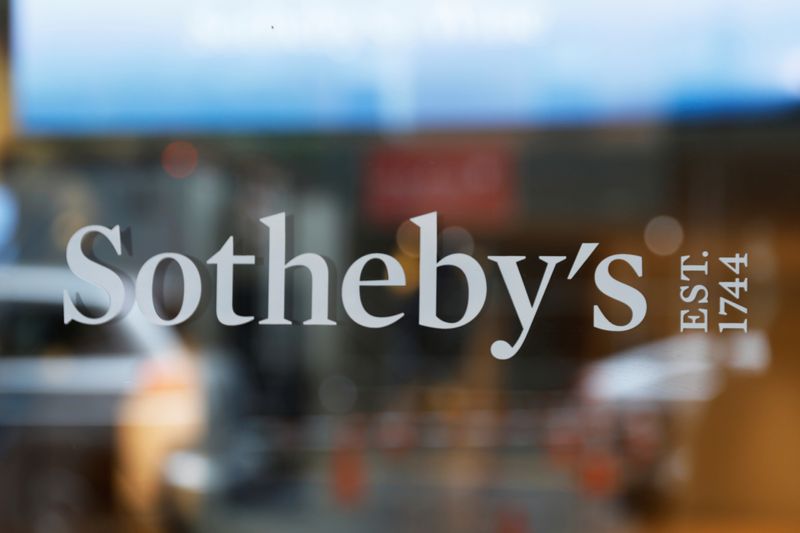
A sign marking Sotheby’s headquarters is seen on the Upper East Side of New York City, U.S., June 18, 2019. REUTERS/Shannon Stapleton
November 6, 2020
By Jonathan Stempel
NEW YORK (Reuters) – Sotheby’s was sued on Friday by New York’s attorney general, who accused the auction house of defrauding the state by helping an important client avoid millions of dollars of sales taxes on art he purchased.
Attorney General Letitia James said Sotheby’s helped the client, a collector of contemporary art, obtain false tax exemption certificates known as resale certificates by letting him portray himself as an art dealer rather than as a collector.
James said this enabled the client, who runs a shipping business and lives mainly outside the country, to avoid sales taxes on more than $27 million of art he bought for personal use between 2010 and 2015, including for his Manhattan apartment.
The complaint said Sotheby’s accepted four resale certificates despite “overwhelming” evidence the purchases were for personal use, including when senior Sotheby’s personnel visited the apartment “to admire his artwork on the walls.”
Sotheby’s did not immediately respond to requests for comment.
The lawsuit was filed in a New York state court in Manhattan, and seeks damages plus civil penalties for violations of the state’s False Claims Act.
It was filed two years after one of the client’s companies, Porsal Equities, reached a $10.75 million settlement to resolve related state allegations over the use of resale certificates.
“Millionaires and billionaires cannot be allowed to evade taxes,” James said in a statement. “Sotheby’s violated the law and fleeced New York taxpayers out of millions.”
(Reporting by Jonathan Stempel in New York; Editing by John Stonestreet and Bill Berkrot)

